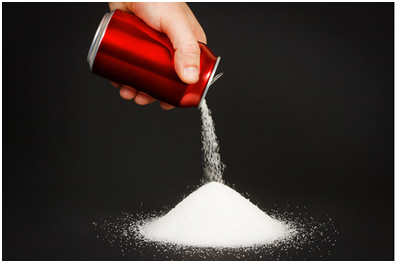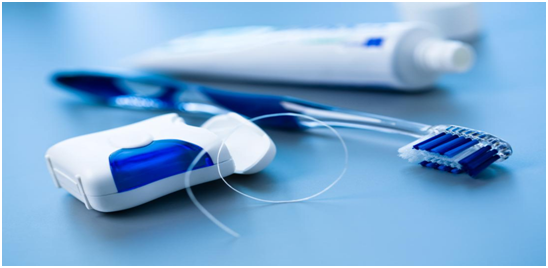Everyone enjoys the feeling of freshness they get after visiting the doctor for teeth cleaning. However, in between regular cleaning, how can you keep that sensation?
Whenever it pertains to dental services, it would be far easier to keep a healthier mouth than it would be to depend on the dentists to fix your bad habits. It’s not as tough as you would imagine keeping that fresh-from-the-dentist sensation.
10 ways to take care of your teeth
Give Up Soda

If you consume soda frequently, you’re probably ruining your teeth. Phosphoric acid plus citric acid, which makes soda effervescent, has already been found to erode off at your enamel, rendering you more prone to cavities.
While occasionally Coke won’t harm you, sticking to water seems to be your best strategy. If you want to amp up the flavor, toss in certain fruit as well as mint leaves.
Reduce Sugar Consumption
Reduced sugar consumption will assist in keeping your teeth strong and hygienic in between frequent teeth cleansing treatments, in conjunction with cutting down on soda.
Sugar encourages bacterial development and acidification in the mouth, which leads to plaque formation. Plaque damages the surface as well as the gums of your teeth, potentially causing dental decay. You might not have to fully avoid sugar, but reducing your intake — as well as cleaning and cleansing after just a delicious treat — will help your dental hygiene.
Stop smoking

Cigarette smoke is extremely harmful to your teeth. Choosing to smoke somewhere between checkups can undo everything of the work done at your previous appointment, no issue how cleaned they are whenever you attend the dentist.
Cigarettes include nicotine plus tar, which eat down at your gums. Smoking boosts the creation of germs and plaques inside the mouth, leaving you more vulnerable to gum diseases and tooth damage. You might be in greater danger of tooth loss and oral cancer whenever you smoked.
Brushing should be done regularly, but not excessively

Cleaning teeth twice per day is amongst the most essential habits for eliminating plaque and germs and maintaining teeth clean, as most individuals are informed. Brushes, on the other hand, may only be successful if people apply the proper technique.
Brushing should be done in small circular movements, with the front, rear, and top of each tooth being brushed. It requires between 2 to 3 minutes to complete this operation. Back-and-forth slicing motions must be avoided.
Tooth enamel plus gums can be damaged by brushing too forcefully or with a firm-bristled toothbrush.
Tooth hypersensitivity, irreversible harm to the covering layer of the teeth, and gum degradation are all possible side effects.
Soft-bristled toothbrushes are recommended by the American Dental Association (ADA). They also recommend that consumers replace their toothbrushes every three months or when the bristles begin to fray, whatever occurs first.
Floss

Flossing cleans areas that a toothbrush can’t even reach, resulting in healthy gums and teeth. Flossing, such as brushing, won’t be as efficient if you don’t do it correctly. Unless you’re not cautious, incorrect flossing could even cause gum damage.
Remember to keep measures in consideration to truly cleanse your teeth while causing serious damage.
Place 2 inches of flossing across your fingers as well as unroll a new category of thread for every tooth.
To end things plaque without injuring your gums, maintain the floss firmly against the teeth. Furthermore, floss beneath the final molar inside your mouth to guarantee a complete clean.
Rather than sugary drinks, drink the water
The most common source of artificial sweeteners is sugar-sweetened drinks.
In the traditional American diet, there is a trustworthy source. Drinking soda, juice, and perhaps other sugary beverages can increase your risk of cavities.
The American Diabetes Association recommends drinking water as well as neutral tea during the day & consuming sugar-sweetened beverages at only lunchtimes and then in small amounts.
Don’t Go Overboard
It could be enticing to scrub your teeth vigorously to ensure that they are clean. Brushing with too much force, on the other hand, might create your teeth increasingly porous as well as sensitive. Furthermore, excessively forceful brushing might cause irreparable gum recession.
Brushing your teeth should be soft; else, it will become a detriment to your general dental health.
Chewing Gum
Brushing your teeth after every other meal is excellent, but it is frequently simpler said than accomplished. Maintaining a container of sugar-free gum on hand will allow you to keep your breath fresher and also get removal of meals between brushings.
Gum chewing stimulates salivary production. Saliva’s inherent antibacterial qualities will help keep germs from feasting on food that remains in your mouths, which could also contribute to plaque build-up or pyorrhea and tooth decay.
Brush Your Teeth While Eating

You probably know that sweets and drinks are bad for your teeth, however, did you guys know that there have been things that can help?
Plaque could be reduced by consuming “detergent” foods such as raw carrots, apples, celery, as well as popcorn on a routine basis. Of course, they’re not a replacement for washing your teeth after a meal, however, if you can’t clean your teeth afterward, finishing your meal with a few of those items would help maintain your dental hygiene in check.
Does Any of this Suggest I Could Forego Visiting The Dentist?
Do you think you won’t need to go to the doctor nowadays that you understand how to take good healthcare of your teeth? Unfortunately, no. Cleanup from a dental professional frequently will assist you to maintain your dental hygiene and detecting potential problems sooner. Remember that the earlier your dentist discovers a problem, the less unpleasant the treatment will indeed be.
What Occurs If Dental Health Isn’t a Priority?
Not prioritizing your oral hygiene could have some fairly serious ramifications, in addition to receiving a tongue whipping from your doctor before your next visit. Poor dental hygiene can harm your entire health in adding to placing you at danger for infections, gum disease, even tooth loss. Whenever you don’t maintain treatment of your gums or teeth, you’re more likely to get cardiovascular illness, dementia, Alzheimer’s illness, respiratory problems, and diabetes problems.
Conclusion
You need to have a mindset of keeping your oral hygiene proper. It may be keeping your teeth clean after meals or refraining from eating sugary drinks or smoking. Also, if anything doesnt work, its alsways best to visit your dentist.
